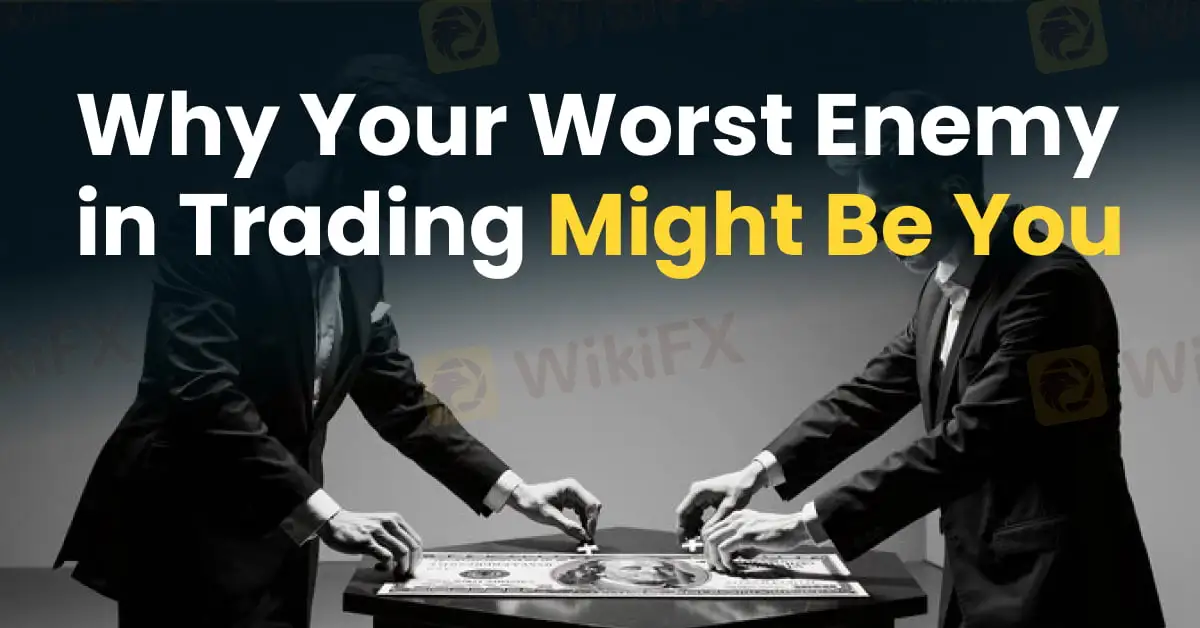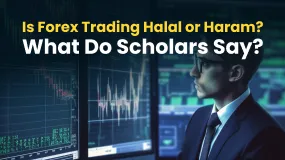简体中文
繁體中文
English
Pусский
日本語
ภาษาไทย
Tiếng Việt
Bahasa Indonesia
Español
हिन्दी
Filippiiniläinen
Français
Deutsch
Português
Türkçe
한국어
العربية
Why Your Worst Enemy in Trading Might Be You
Abstract:Be Honest With Yourself: Are You Slowly Destroying Your Trading Account?

In the world of online trading, discipline often makes the difference between success and failure. Yet, even seasoned traders can fall into one of the most common and damaging habits in the market, that is, overtrading.
Overtrading doesnt just mean placing too many trades; it often stems from deeper psychological drivers. Whether driven by the thrill of market action or the desire to make up for recent losses, traders can quickly find themselves in a destructive loop. Many convince themselves they are being productive, but when in reality, they are simply reacting to emotions.

One clear warning sign is the compulsion to be in the market at all times. Some traders feel uncomfortable when they are not in a position. They equate inactivity with missed opportunity. But seasoned professionals understand that not trading is sometimes the best trade. Markets offer endless opportunities, but only the patient and disciplined can seize the right ones.
Another indicator of overtrading is taking positions that are too large. Risking too much on a single trade or increasing position sizes after a loss reflects emotional decision-making. This behaviour often signals an attempt to win back money quickly, which rarely ends well. It is important to remember that every trade should be based on a well-thought-out plan, not a reaction to past outcomes.
Poor trade setups taken out of boredom or frustration are also classic signs. Traders who find themselves forcing trades when the market conditions are unclear are usually not operating from a sound strategy. The result? A cluttered trading log and an account balance that tells a painful story.
Another often overlooked sign of overtrading is the excessive attention paid to the screen. Obsessively watching every tick or candle can create a false sense of urgency. Some traders develop the false belief that more screen time equals more control. In reality, this behaviour often leads to rushed decisions, fatigue, and eventually, burnout.
Professional traders have one thing in common: they understand the importance of quality over quantity. They follow a system, track their trades, and regularly review their performance to identify when emotions, rather than logic, are driving their decisions.
To avoid falling into the overtrading trap, traders must be honest with themselves. Keeping a journal is one practical step as recording every trade, the reason for taking it, and how they felt at the time can uncover patterns. Was the trade based on strategy or emotion? Was the market offering a genuine opportunity, or were they simply impatient?
Ultimately, self-awareness is the first line of defence against overtrading. The markets reward discipline, patience, and a clear mind. Traders who recognise and correct the signs of overtrading give themselves a better chance of long-term success. And sometimes, the best trade is no trade at all.

Disclaimer:
The views in this article only represent the author's personal views, and do not constitute investment advice on this platform. This platform does not guarantee the accuracy, completeness and timeliness of the information in the article, and will not be liable for any loss caused by the use of or reliance on the information in the article.
Read more

Revealing The Latest Forex Scams in FXRoad
Have you been lured into forex investment through FXRoad under the fake impression of professionally managed services? However, in real time, this broker denied withdrawals? You have unfortunately trusted a scam broker. Read some hard reviews of the broker.

WeTrade Review: Why Traders Are Choosing WeTrade in 2025?
With so many trading platforms available today, traders have every reason to be careful—and staying scam alert is more important than ever. However, WeTrade has managed to earn a positive reputation for the right reasons. Know the Reasons right away

Is Forex Trading Halal or Haram? What Do Scholars Say?
For Islamic traders and investors, one of the most relevant and frequently asked questions is whether forex trading is halal (permissible) or haram (forbidden) in Islam? In this article, we will explore both sides of the debate. Keep reading to uncover the truth and make Informed & Faith-conscious decisions about your investments.

Fraud Alert: 5 Issues You Might Face with Binomo
Binomo is a fake broker that pretends to be genuine. It makes unrealistic claims to lure traders into their trap. Before you fall victim to this scam, we’re here to issue a fraud alert and expose the five red flags you need to watch out for.
WikiFX Broker
Latest News
Fortrade: A Closer Look at Its Licenses
FRAUD ALERT! Spanish Regulator, CNMV Exposed Scam Brokers
Euro zone economy ekes out better-than-expected 0.1% growth in second quarter
Adidas to raise prices as US tariffs cost €200m
Top 4 Forex Scam Tactics Fake Brokers Use to Trap Investors
10 Best MUST- READ Books on Forex Trading
Inefex: Mastering the Art of Duping Forex Investors
Companies from Stanley Black & Decker to Conagra are saying tariffs will cost them hundreds of millions
Trump's tariffs could soon bring higher food prices for some Americans, analysis finds
iFourX: So Many Red Flags You Can’t Ignore
Currency Calculator


